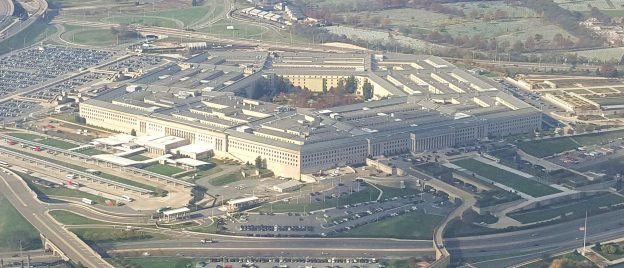The Defense Department’s Fiscal Year 2025 budget addressed the most significant national security priorities for the United States, including strategic competition with China and Russia; disruptive technologies like hypersonic weapons, artificial intelligence, and quantum computing; modernizing America’s ships, aircraft, and combat vehicles; and improving the lives of our servicemembers and their families.
However, like almost all other government agencies, taxpayer dollars have been misspent less wisely on areas not crucial to national security.
In February, Defense Secretary Pete Hegseth discussed his priorities of strengthening the military by cutting fiscal fraud, waste and abuse at DOD while also finding ways to refocus the department’s budget.
Hegseth began his remarks stating the Defense Department owes the American people transparency related to steps DOD is taking to accomplish its mission while being good stewards of taxpayer dollars.
“We shoot straight with you. We want you, the American people — the taxpayers — to understand why we’re making the decisions that we’re making here,” Hegseth said, adding that DOD is working as quickly as possible to execute the priorities of achieving peace through strength by rebuilding the military, restoring the warrior ethos and reestablishing deterrence.
Prior to getting in-depth on issues related to the department’s finances, Hegseth cautioned viewers to take anything they’ve heard and/or read on the topic with a “gigantic grain of salt.”
He touched on three areas related to the Pentagon’s finances.
First, Hegseth said to tackle excess spending and address the issue of fraud, waste and abuse within DOD, the department would be relying on the recently established Department of Government Efficiency.
“Here, and they’re going to be incorporated into what we’re doing at DOD to find fraud, waste and abuse in the largest discretionary budget in the federal government.”
Hegseth noted that DOGE would be given access to systems — with proper safeguards and classifications — to first find redundancies and identify previous priorities not core to the department’s current mission and then get rid of them. The Secretary emphasized that “…we are focusing as much as we can on headquarters and fat and top-line stuff that allows us to reinvest elsewhere.”
He also addressed reorienting the defense budget inherited from the previous administration.
Hegseth said beginning immediately, the Pentagon will pull 8% — or roughly $50 billion — from nonlethal programs in the current budget and redistribute the funds on “America First” priorities for national defense. “That’s not a cut; it’s refocusing and reinvesting existing funds into building the force that protects you, the American people.”
He also said there are certain areas where funds will not be refocused — border protection, fighting transnational criminal organizations, nuclear modernization, submarine programs, missile defense, drone technology, cybersecurity, core readiness and training and the defense industrial base among them.
The secretary then turned to his third topic: the reevaluation of the Defense Department’s probationary workforce. He pushed back on recent reports that DOD would do across-the-board cuts of all probationary employees.
Hegseth said leaders are reevaluating probationary employees “carefully and smartly,” and future manning decisions would be based, in part, on quality of performance. “We’re starting with the poor performers among our probationary employees because it’s common sense that you want the best and brightest. So, when you look at headcount, we’re going to be thoughtful; but we’re also going to be aggressive up and down the chain to find the places where we can ensure the best and brightest are promoted based on merit,” he continued.
The Secretary added DOD will implement a hiring freeze to take time to identify better hiring practices as they relate to finding the most “hard charging” employees that are central to the department’s core warfighting mission.
He finished his remarks by discussing transparency and the value he sees in communicating directly to the people. “Our warfighters and taxpayers deserve no less, and we’ll keep reporting back to you from time to time on what we’re seeing.”
Photo: Frank Vernuccio
